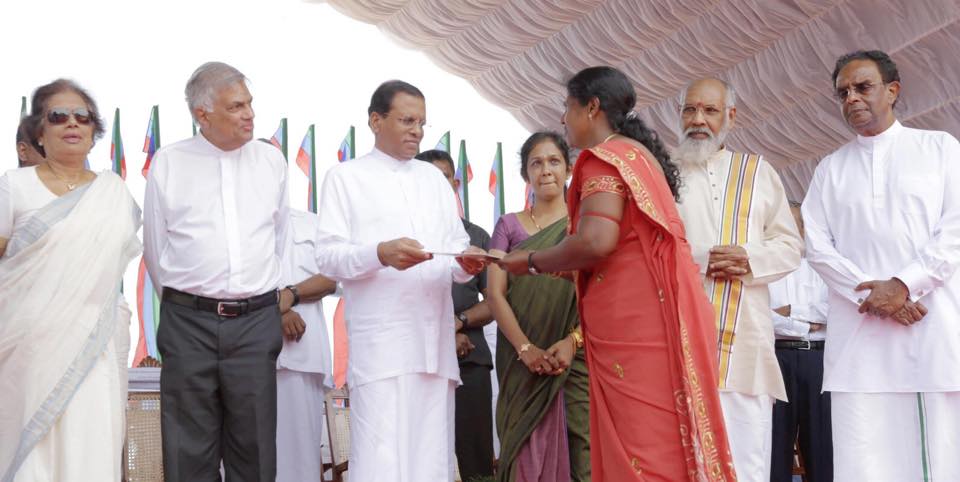National Reconciliation: Preservation Of Religious & Ethnic Harmony
By Mass L. Usuf –January 6, 2016

The idea of national reconciliation embraces the citizenry of the entire nation. The path to reach this consensus is through aligning the nation to the theme of Mankind. If there is one thing which can catalyze the bonding of people of different hues, it is this basic social structure – Man and woman. Allow the nomenclatures of race, religion and caste orbit on their own field forces. Let the differentiations serve only as identities for the purpose of knowing and understanding the diversity.
This alignment is a process by itself. There is a huge national and social responsibility that has to be shouldered by the government, civil organizations, religious institutions, educational institutions and the citizens. The greatest responsibility lies with the government. It must commit itself with courage, steadfastness and a determined will to engineer this social change. A redirection of the trajectory of traditional notions towards a more inclusive social structure should be on the anvil. To live with 18th century thinking in the present cannot be more disastrous to the nation. The reality is, whether we like it or not, we must take cognizance of the potpouri of different cultures, heritages, languages, religions, ethnicities and their evolutionary processes. The mutually exclusive elements of this mix nevertheless are inclusively linked by a simple basic structure – Man and woman.
Testing sincerity
As part of the powers and duties presently exercised under Article 33 of the Constitution, the President shall also promote national reconciliation and integration. A powerful personality has been appointed as the Chairperson to the Office for National Unity and Reconciliation (ONUR), Ex-President Chandrika Kumaratunga. Her task inter alia is to ensure and facilitate the preservation of religious and ethnic harmony.
 A mere extension of the President’s powers to embrace these areas may arguably be critiqued as a cosmetic embellishment. In fact, if the President decides he can ignore or go slow on the promotion of national reconciliation and preservation of religious and ethnic harmony. Who can question him in this regard? Therefore, from a Presidential power point of view, in this instance, there is the concentration of power in one authority with the choice for elective usage. This nation has seen the good, the bad and the ugly. President Maithripala Sirisena is a good person but Article 33 will survive him. Read More
A mere extension of the President’s powers to embrace these areas may arguably be critiqued as a cosmetic embellishment. In fact, if the President decides he can ignore or go slow on the promotion of national reconciliation and preservation of religious and ethnic harmony. Who can question him in this regard? Therefore, from a Presidential power point of view, in this instance, there is the concentration of power in one authority with the choice for elective usage. This nation has seen the good, the bad and the ugly. President Maithripala Sirisena is a good person but Article 33 will survive him. Read More
